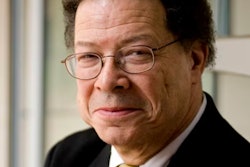A new study found that United States military veterans are more likely than the general population to hold certificates or certifications.
Strada Education Network and the Lumina Foundation collaborated to produce the “Veterans Without Degrees: The Benefits and Opportunities of Certificates and Certifications” report. Perspectives from veterans were used to analyze both the challenges and benefits of holding non-degree credentials.
“[Veterans have] received all kinds of education and training after high school that isn’t necessarily always something that’s recognized or takes place in a traditional community college or classroom,” said Dr. Nichole Torpey-Saboe, who is the head researcher of the report. “They have an incredible amount of experience, education and training but are they seeing the benefits of that when they leave the military?”
Of the over 340,000 people aged 18-65 who participated in this study, around 30,000 were veterans. In general, 42% of veterans hold a college degree while 33% have a certificate or certification but no degree. Additionally, 35% of males have a certificate or certification while just 24% of female veterans do, according to the report. For those veterans without degrees, only 39% reported that they need more education to advance their careers, compared to 46% of the general population without degrees. There was a noticeable difference based on racial demographics. For veterans of color, around 50% said they needed more education in addition to non-degree credentials while only 37% of White veterans agreed, according to the report findings. The number changed based on occupation as well. The fields with the highest need for additional education included health care, social services and education. On the other hand, the lowest desire for additional education came from jobs within the farming, small-business ownership and transportation sectors.
In terms of benefits of the non-degree credentials, it was noted that certificates and certifications increased rates of employment as well as salary wages for veterans without degrees. According to the report, 73% of veterans with non-degree credentials are employed and earned more compared to 64% of those without any credentials. There was an average increase of $10,000 in median income for those veterans who hold a certificate or certification. The top occupations for non-degree veterans with certificates or certification included installation or maintenance, transportation, construction, manager and security or protective services.
The report also emphasized the discrepancies between the education and training received in the military with what veterans are credited with post-service. After serving in the military, veterans often face difficulties with the transition process into either education or the workforce because their previous experience isn’t always easily transferable. Additionally, sometimes their experiences are difficult to explain, said Torpey-Saboe.
“If you had a particular job, you don’t necessarily know how that translates into a similar civilian job or a similar civilian degree and there is a lot of overlap but it’s not always apparent,” said Torpey-Saboe, who is also the director of research and consumer insights at Strada. “And for people who are not familiar with the military, they might not see how a particular experience in the military could have applicability outside that field.”














